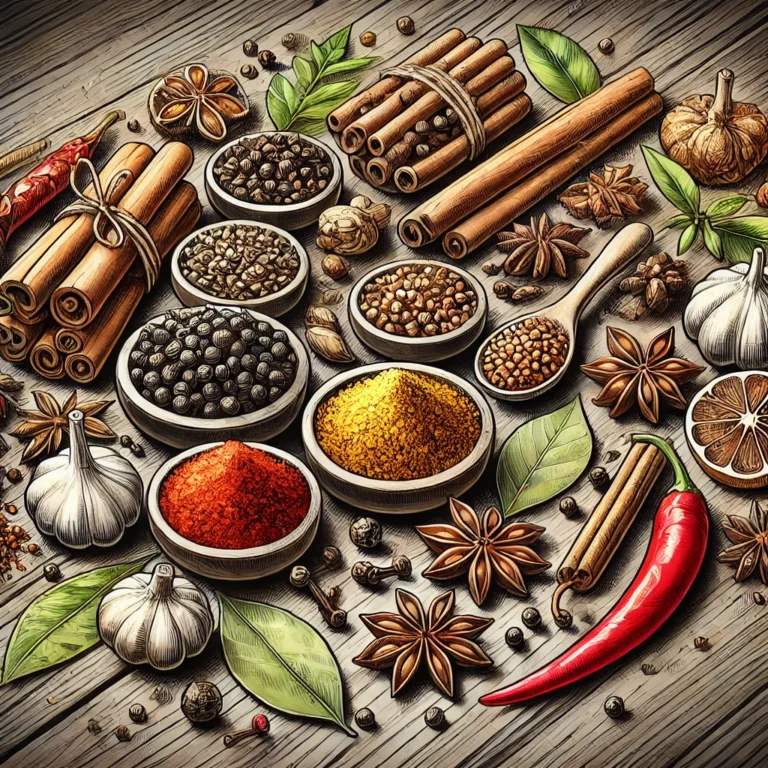Call us now:
Trademark registration for bioproducts in Vietnam is a vital step for companies aiming to establish and protect their intellectual property rights in the biotechnology sector. As the demand for sustainable and eco-friendly solutions grows, bioproducts have become increasingly popular in fields such as agriculture, healthcare, and environmental management. Registering a trademark not only secures exclusive rights for businesses over their brand but also strengthens their position in a competitive market. This process ensures that bioproduct innovations are safeguarded against infringement, supporting companies in building trust and long-term value with consumers.

Bioproducts
Bioproducts are products derived from biological elements such as microorganisms, enzymes, fungi, bacteria, or extracts from plants and animals. They play an important role in applying natural processes to replace or support chemical methods across various fields. In agriculture, bioproducts are commonly used as biofertilizers, biopesticides, or soil conditioners, helping to improve crop yields, protect plants from pests, and enhance soil resilience. They not only optimize plant growth but also reduce dependence on synthetic chemicals, thus minimizing environmental pollution and safeguarding human health.
In medicine, bioproducts are utilized as biologic drugs, vaccines, or therapeutic enzymes, directly influencing physiological processes to treat or prevent diseases. These products are often highly effective and generally cause fewer side effects compared to synthetic drugs.
In the food industry, bioproducts such as probiotics and enzymes are used to improve production processes, enhance flavor, quality, and shelf life of food products. For instance, probiotics used in fermentation produce items like yogurt, cheese, and other fermented foods, which are not only nutrient-rich but also beneficial for digestive health.
Overall, bioproducts are essential in promoting sustainable and environmentally-friendly development, meeting the rising demand for green and safe solutions for both people and ecosystems.
Application of Trademark Registration for Bioproducts in Vietnam
Application of Trademark Registration for Bioproducts in Vietnam must be thoroughly and accurately prepared to ensure a smooth registration process. Below are the detailed components required for a bioproduct trademark registration application in Vietnam:
1. Trademark Registration Application Form
The application form is a key document in the registration process and must be completed according to the official format required by the Vietnam Intellectual Property Office (IPVIETNAM). This form serves as the legal basis for IPVIETNAM to assess and consider granting a Trademark Registration Certificate.
The form must clearly state the full name of the individual or organization holding ownership of the trademark. For organizations, the name should match that on the business registration license. The form should also include the owner’s detailed address, including street name, district, and city or province. Organizations must list their headquarters’ address. Additionally, contact information such as phone number and email should be provided so IPVIETNAM can reach the trademark owner if needed.
If the applicant is not the trademark owner, details of the applicant, including name, address, and contact information, must be provided, along with a power of attorney authorizing them to handle the registration process on behalf of the trademark owner.
The form should detail the trademark’s distinguishing features. If the trademark uses specific colors, the colors and their locations within the design should be specified. Any symbolic or meaningful elements of the trademark should also be explained to clarify the brand message. For trademarks with stylized text, graphics, symbols, or other identifiable elements, detailed descriptions should be provided to differentiate it from other trademarks.
The form must be signed by the trademark owner or their legal representative, affirming that the provided information is accurate and truthful. A detailed and compliant application form is critical for a swift registration process and increases the chances of successful trademark protection for the bioproduct.
2. Trademark Sample
Along with the application form, at least five trademark samples measuring 8×8 cm must be provided. These samples should be in color or black and white, depending on the actual trademark design, and must clearly display all elements such as images, symbols, text, or any other distinguishing features. The samples should be sharp, clear, and identical to the original design, with no blurring or missing details.
It is essential that these samples precisely match the version of the trademark intended for use on actual products or services to ensure accurate registration and protection of the trademark as it will appear in the marketplace.
Additionally, the samples must be presented carefully, with no modifications or errors, so IPVIETNAM can easily identify and assess the trademark throughout the application review process. Accurately prepared samples improve the likelihood of a successful application and reduce the need for additional information or corrections during examination.
3. List of Products/Services Under the Trademark
Products or services related to the registered trademark must be clearly and correctly categorized according to the International Classification of Goods and Services (Nice Classification). This international system assigns goods and services to specific classes, helping to define the trademark’s scope of protection accurately and transparently.
In preparing the application, the applicant must identify the products or services covered by the trademark and classify them according to the Nice Classification. For example, if the trademark is registered for bioproducts used in agriculture, it may fall under Class 1 (chemicals used in industry and agriculture). After determining the appropriate class, detailed descriptions of the related products or services should be provided to clarify the trademark’s scope of protection and avoid confusion with other products or services.
Correct classification according to the Nice Classification is essential, as it establishes the trademark’s scope of protection. A trademark is protected only in the product or service classes listed in the application. Misclassification or errors in listing may result in inadequate protection or complications in future intellectual property disputes.
The Nice Classification is updated regularly to include new products and services, reflecting market trends. Therefore, applicants should refer to the latest version of the classification to ensure precise and compliant categorization of products or services.
Process for Filing a Trademark Registration Application for Bioproducts in Vietnam
The entire application must be prepared in Vietnamese. If there are documents in a foreign language, they must be translated into Vietnamese with certified translations. The trademark registration application can be submitted directly at the Intellectual Property Office of Vietnam (IP VIETNAM) or through its representative offices. Once submitted, the application will go through the stages of formal examination, publication, substantive examination, and, if it meets all protection conditions, the issuance of the Trademark Registration Certificate.
Proper and accurate preparation of the trademark registration application is crucial, as it helps save time, reduce costs, and increase the likelihood of successful protection for bioproduct trademarks.
How Long Does it Take to Register a Trademark for Bioproducts?
The registration process for a bioproduct trademark in Vietnam may take from 18 to 24 months, depending on the examination stages and other related factors. If the application contains complex elements or requires modifications or additional information, the processing time may be extended.
In cases of objections or disputes concerning the trademark, the processing time may be significantly prolonged to address these issues. During the publication period, third parties may file an objection if they believe the trademark infringes on their rights. When an objection is filed, the dispute resolution process can extend the application processing time substantially. This typically requires the applicant to provide additional evidence and documentation to defend their rights. If any legal issues arise regarding the trademark’s legitimacy, or in cases of ownership disputes, the dispute resolution process can become quite lengthy, involving multiple legal steps and thorough examination.
The workload at IP VIETNAM is also a significant factor affecting processing times. When the office is handling a high volume of applications or facing capacity limitations, the examination and certificate issuance times may be extended.
Are you in the bioproducts business in Khanh Hoa and looking to protect your brand? DCNH Law offers professional trademark registration services, helping you quickly establish legal ownership, enhance product value, and boost market reputation. With an experienced team of lawyers well-versed in trademark registration processes, we are committed to delivering efficient, time-saving, and cost-effective solutions for your business. Let us be your partner in building and protecting a sustainable brand!
Contact Us Now:
DCNH LAW
Address: 38B Tran Nhat Duat, Phuoc Hoa ward, Nha Trang city, Khanh Hoa province, Vietnam.
Phone: (+84) 343320223 – 974278893
Email: dcnh.law@gmail.com




